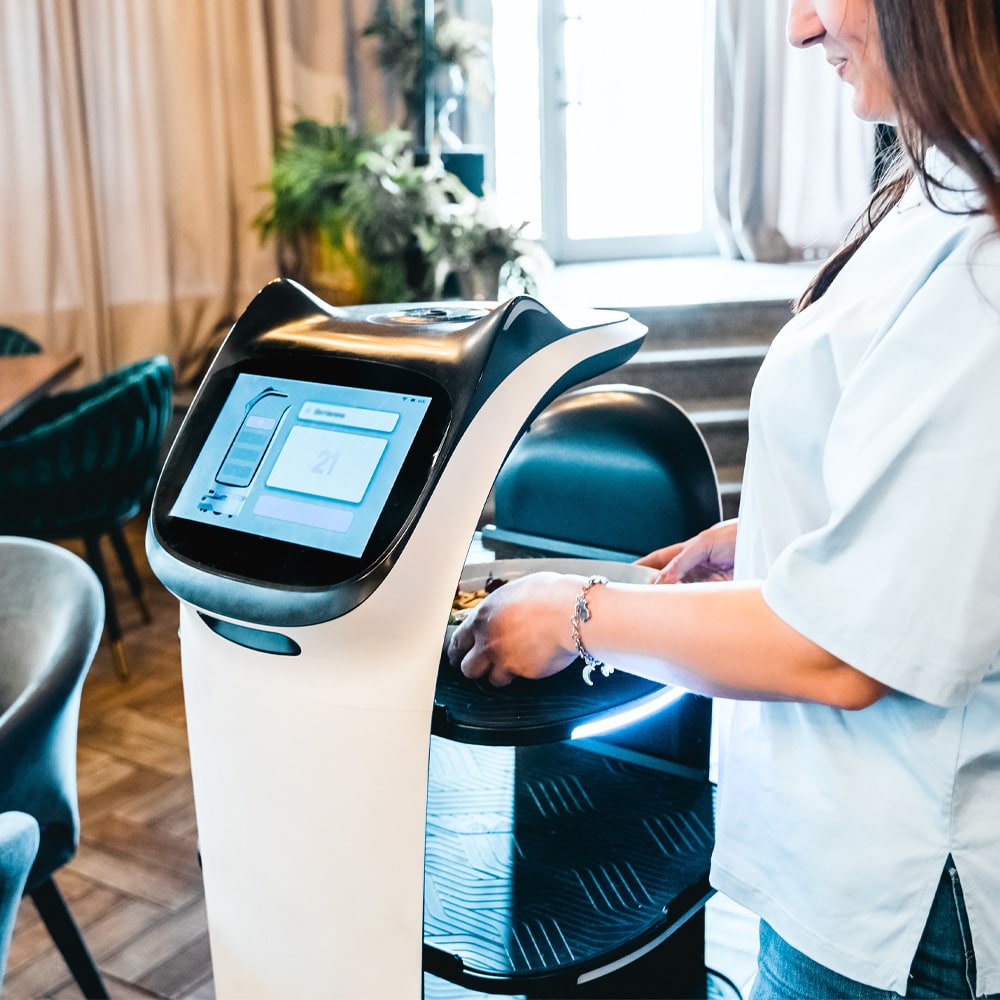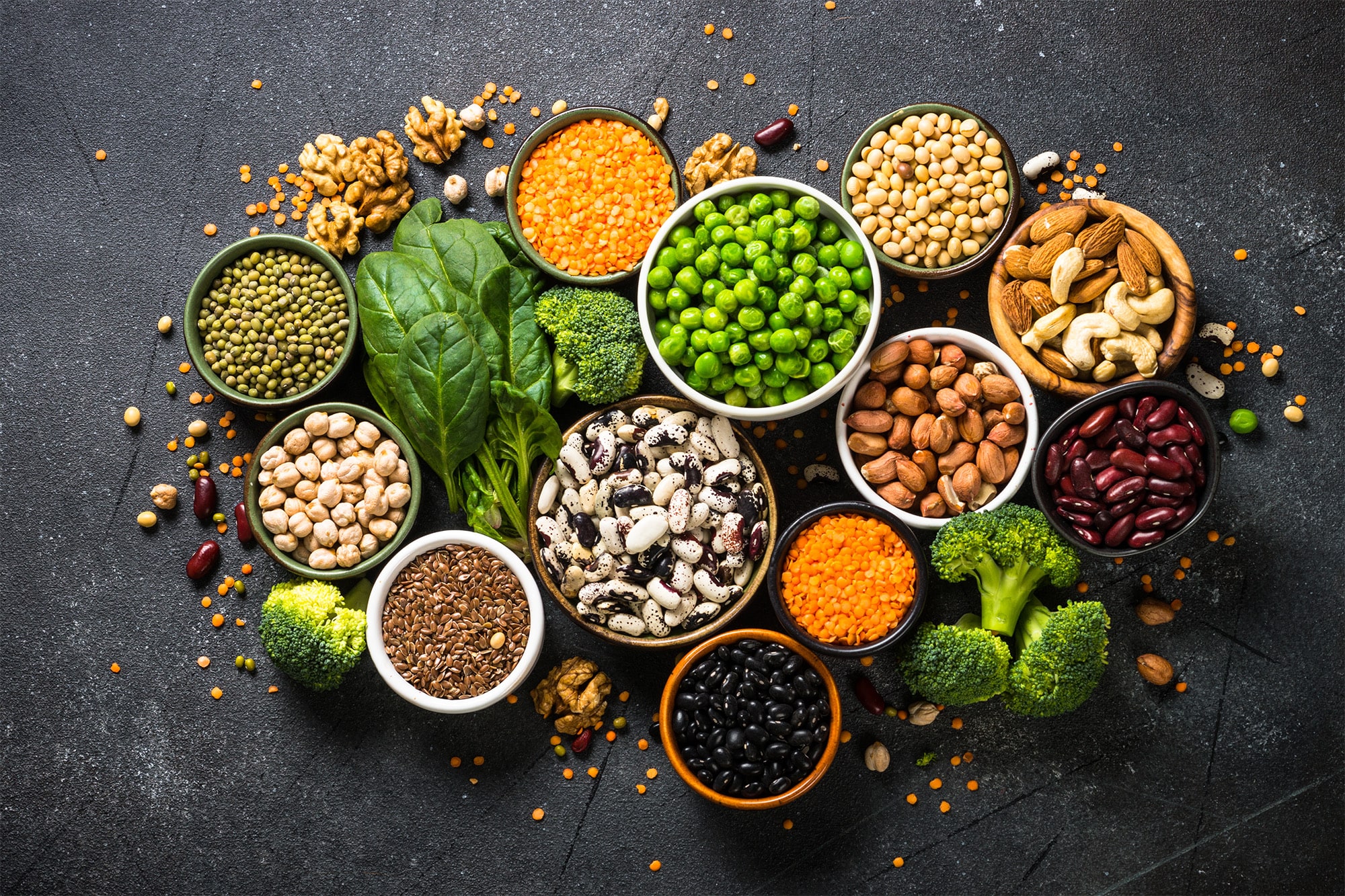
1- AI, of course
Can we really ignore AI in 2024? Artificial intelligence knows our tastes and habits; it recommends recipes based on what’s in our fridge and draws up a shopping list for anything we might be missing.
Speaking of groceries, AI also roams up and down supermarket aisles. Electronic labels, for example, allow for dynamic pricing in line with expiry dates and thus helps the fight against food waste.
In restaurants, AI is making progress. Robotic assistants help out in the kitchen and ensure even cooking. Soon, conversational AI might even take our order at the drive-thru, will recognize our voice and suggest we top off the order with our favourite dessert. Then, it will recommend restaurants to suit our taste.
AI can help food producers in various aspects of their work, including inventory management. Before long, it will be developing new products and evaluating their potential for success. Apparently, it could even generate a kind of false tongue equipped with sensors capable of perceiving tastes like our own taste buds. There's no stopping progress.
2- Brain food
A common concern, especially as we get older, is brain health and ‘staying sharp’.
We know that with middle age comes a gradual and natural deterioration of memory and mental capacity. That's the way the body works. Of course, it's useful to keep the brain stimulated by crossword puzzles and other similar exercises, but a healthy lifestyle is a much more effective way of countering this decline. It's hardly surprising, then, that many people turn to foods that promote good brain function. In fact, the market for foods and beverages to promote brain health is forecast to reach $40.34 billion by 2030.
When it comes to good lifestyle habits, more and more people are looking to reduce alcohol and coffee consumption and increase consumption of "good" brain foods. Companies are sniffing out the good stuff. While some have identified substitutes for the elements singled out, others have developed foods with added natural cognitive stimulants.
This niche is still relatively unexploited. However, given the market potential, it's clear that any company marketing products whose ingredients are associated with the preservation of brain function would do well to capitalize on these elements in its positioning.

3- 0% alcohol, 100% taste
As mentioned earlier, many people are cutting back on how much alcohol they drink. They do it for their brain health, as we said, but also for their general health or the quality of their sleep. Now, it's not just designated drivers who are drinking less.
While alcohol consumption is falling, non-alcoholic drinks are on the rise. At the same time, there is growing interest in low-alcohol products. However, simply reducing the alcohol content of a product is not enough to satisfy consumers. More than ever, consumers expect a beverage with little or no alcohol, but above all, they expect taste. Gone are the days when people willingly sacrificed taste when they wanted to drink a non-alcoholic beer. Brewers and microbrewers have understood this. They have worked hard over the last few decades, and many now offer high-quality alcohol-free beers. As for wine, there is still work to do.
The future will undoubtedly bring more products containing less alcohol. It may also bring new labelling standards. Some countries have already opted for warning labels on wine bottles, similar to those found on cigarette packets. This measure is intended to make people more aware of their alcohol consumption.
Apparently the SAQ was right all along: moderation really does taste best.
4- Future clients
We've already heard of baby-boomers, Gen-Xers and millennials. Now we'll have to add another layer with the alpha generation (people born between 2010 and 2024). Although this is a rather small segment, it's well worth a closer look. Soon, alphas will represent significant marketing dollars, so we're already trying to predict their future consumer behaviours.
The oldest of this generation are reaching adolescence. They are digital natives who have grown up with technology. Their favourite celebrities are on TikTok or YouTube, which will undoubtedly shape the way products are marketed to this generation.
For many parents of alphas, nutrition means health and variety. The latest generation is also exposed to great culinary diversity (thanks to technology and travel, in particular) and a rich multiculturalism. All this could easily lead to more openness, food-wise.
A whole new clientele is on the horizon. Think about it...
5- Taste the real thing
Anyone who has been to the grocery store can see the increase of ultra-processed plant-based products. We’re talking about meat alternatives or faux-mage vegan cheese, to name but two of the many examples.
These products are essentially aimed at meat eaters, who make up the vast majority of consumers. They are likely to be of less interest to vegetarians or vegans, who value food quality as much as taste. The long list of ingredients in these highly processed products will probably have lost their interest.
The first wave of new plant-based products piqued the curiosity of many who only wanted to see if these alternatives really tasted like the real thing. But what happens once the wave has passed?
Maybe comparison isn't the answer after all. What if we opted for plant-based products simple because they taste good? What if we offered plant-based foods that showcased the taste of the plants they are made of? Why not introduce consumers to new plant-based flavours instead of burgers that mimic beef and nuggets that imitate chicken? Maybe that's the answer.
